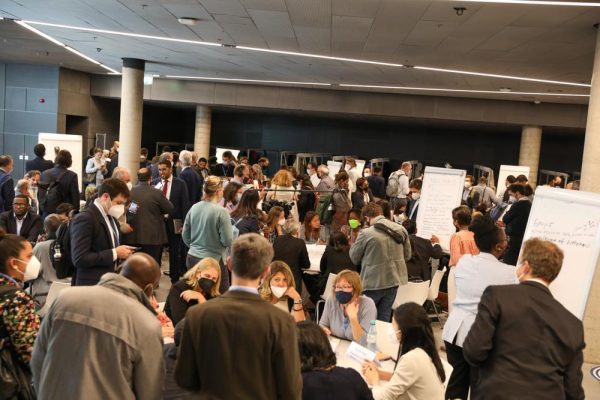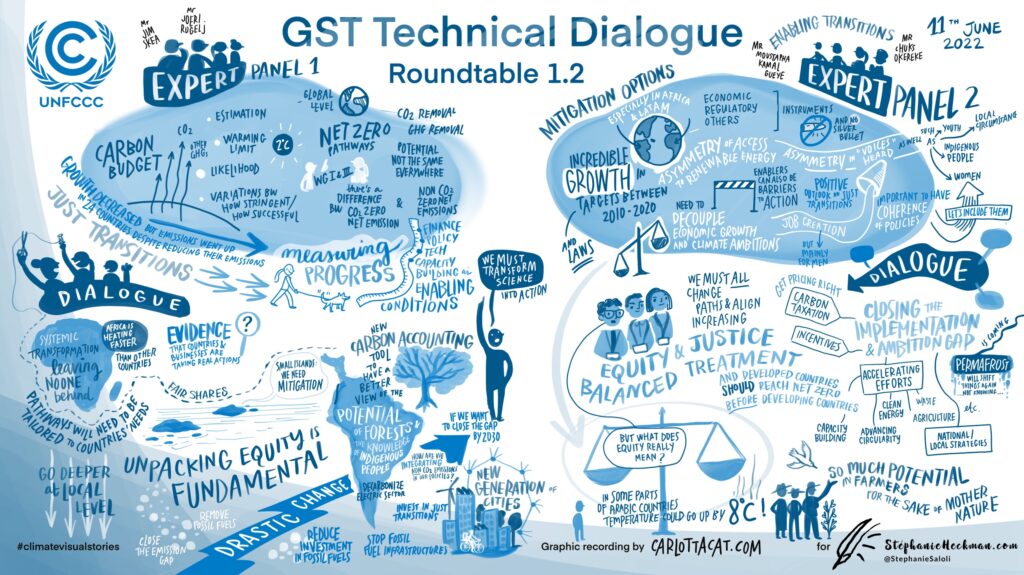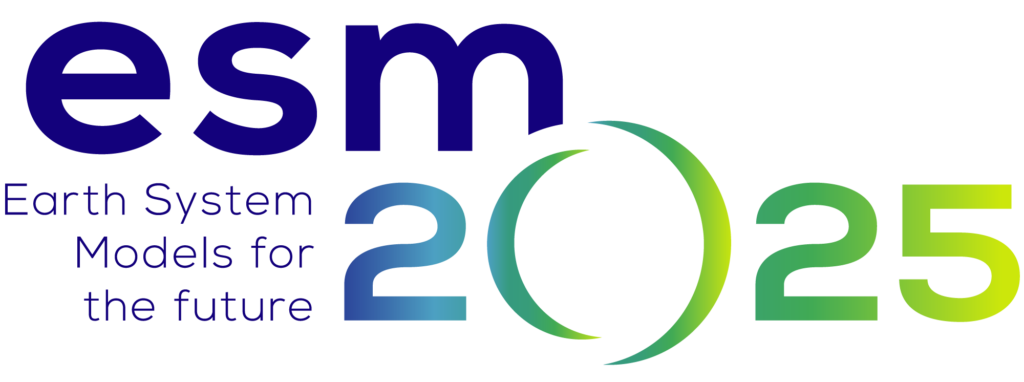
Article by Till Kuhlbrodt - National Centre for Atmospheric Science, University of Reading, UK
The ongoing severe heatwaves and droughts in the Northern hemisphere in Summer and Autumn 2022 highlight, again, the urgency of mitigating anthropogenic greenhouse gas emissions, and the pressure to adapt to climate change. In the Paris Agreement of the UNFCCC, the nations of the world have committed to curbing greenhouse gas emissions to avoid crossing the global warming threshold of 2°C (striving to avoid even the 1.5°C threshold). As a global community, we must fully implement the commitments of the Paris Agreement to avoid more dangerous climate change.
THE GLOBAL STOCKTAKE
A not-yet well-known, but essential part of putting the Paris Agreement into action is the Global Stocktake. The Global Stocktake (GST) assesses the world’s collective progress towards achieving the purpose of the Paris Agreement and its long-term goals. It is a comprehensive process that assesses all aspects of greenhouse gas-driven global change, from the emissions and their impact on the climate to measures aiming at averting and minimizing loss and damage for communities around the world, extending to adaptation measures and finance flows, and defining mitigation pathways to reach a net-zero carbon budget for all human activities.
UNFCCC panels are carrying out the Global Stocktake every 5 years. At the moment – that is, from 2021 to 2023 – it is happening for the first time. It will then be conducted every five years, i.e., the next one will be starting in 2026-2028.
There are three main components of the GST: (1) Information Collection and Preparation; (2) Technical Assessment; and (3) Consideration of Outputs. This Autumn, “Information Collection and Preparation” is ongoing. Its focus is on gathering, compiling and synthesizing information, and preparing for the Technical Assessment component. The Technical Assessment does the core work of taking stock of the implementation of the Paris Agreement to assess collective progress towards achieving its purpose and long-term goals. As part of the Technical Assessment, a first Technical Dialogue was held in June 2022, in Bonn, and the next Technical Dialogue is planned for COP27 in Egypt, in November 2022. Finally, the Consideration of Outputs will summarise and conclude the first GST by discussing the implications of the findings of the Technical Assessment and by enhancing international cooperation for climate action. The Consideration of Outputs will probably be released at COP28, in Autumn 2023. Until then, the website of the Global Stocktake points to various ways for participating.

GST GUIDING QUESTIONS
A set of 34 Guiding Questions (GQ) set the scope for the “Information Collection and Preparation” component of the GST. Among many other aspects of global change, these GQs explicitly ask for the impact of the emissions reduction achieved so far on, and for the projections of:
- Global greenhouse gas concentrations
- Global temperature change
- Remaining pathways to meet the Paris Agreement long-term temperature goal
- Changes in the global climate system and biosphere
- Global levels of climate risks.
Much of the ESM2025 research output will address these Guiding Questions. Aligning the research with the aims of the GST is a great opportunity for climate and Earth System scientists to make an even bigger impact. Specifically, ESM2025 results and publications will feed into the second GST (in 2026-2028), either directly or through Synthesis Reports.
Indeed, we would argue that the GST, as agreed on at COP24 in 2018, mandates climate and Earth System science to align their research with the Guiding Questions of the GST, providing the best possible and up-to-date information to the GST and the global community, every five years.

